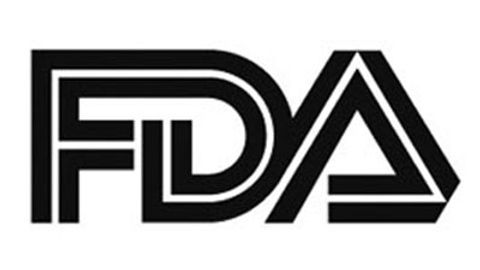FDA Approves Decitabine Plus Cedazuridine for MDS With Multiple Indications
FDA has granted approval to the combination regimen decitabine and cedazuridine as treatment of adult patients with myelodysplastic syndromes under multiple indications.

FDA has granted approval to the combination regimen decitabine and cedazuridine (Inqovi) as treatment of adult patients with myelodysplastic syndromes (MDS). The indications for this approval include patients with previously treated or untreated de novo and secondary MDS and patients with intermediate-1, intermediate-2, and high-risk International Prognostic Scoring System groups. Patients with de novo or secondary MDS must fall under specific subtypes including refractory anemia, refractory anemia with ringed sideroblasts, refractory anemia with excess blasts, and chronic myelomonocytic leukemia (CMML).1,2
"The FDA remains committed to providing additional treatments to patients during the coronavirus pandemic. In this case, the FDA is making available an oral outpatient treatment option that can reduce the need for frequent visits to health care facilities," said Richard Pazdur, MD, director of the FDA's Oncology Center of Excellence and acting director of the Office of Oncologic Diseases in the FDA's Center for Drug Evaluation and Research, in a statement.2 "At this critical time, we continue to focus on providing options to patients with cancer, including regimens that can be taken at home."
The approval of decitabine/cedazuridine was the result of a collaborative Priority Review by Oncology Center of Excellence Assessment Aid and Office Pharmaceutical Quality’s Assessment Aid within the FDA, which was based on the ASTX727-01-B (NCT02103478) and ASTX727-02 (NCT03306264) clinical trials.1,2
In the ASTX727-01-B study, 80 adult patients with MDS or CMML were enrolled. Decitabine/cedazuridine demonstrated a complete response (CR) rate of 18% (95% CI, 10%-18%) and a median duration of CR of 8.7 months (range, 1.1-18.2). During baseline assessment, 41 patients of the 80 patients in the study were found to be dependent on red blood cell (RBC) and/or platelet transfusions, and of those patients, 29% developed RBC and platelet transfusion independence during treatment. In addition, 64% remain transfusion independent during any consecutive 56-day period following baseline assessment.
A total of 133 patients with MDS or CMML were included in the ASTX727-02 study, in which decitabine plus cedazuridine achieved a geometric mean ratio of 99% (90% CI, 93%-106%). Overall, 21% of the patients in this study had a CR (95% CI, 15%-29%), and the median duration of CR was 7.5 months (range, 1.6-17.5). Fifty-seven subjects were RBC and/or platelet transfusion-dependent at baseline, but within 56-days post-baseline, 53% were RBC and platelet, transfusion independent. Similar to the ASTX727-01-B trial, 63% of patients in the ASTX727-02 study remained transfusion independent during any 56-day post-baseline period.
In both clinical trials, randomization was 1:1, and the dosing was identical at 35 mg decitabine and 100 mg cedazuridine, which administered orally in cycle 1 and intravenously in cycle 2. In some cases, the reverse sequence is used for the administration of the drugs. Both drugs were also administered intravenously on days 1 through 5 of a 28-day cycle. Once treatment reached cycle 3, cedazuridine was administered orally once daily on days 1 through 5 of each 28-day cycle until disease progression or unacceptable toxicity.
There was a 20% incidence of adverse reaction with the cedazuridine regimen, which most commonly included fatigue, constipation, hemorrhage, myalgia, mucositis, arthralgia, nausea, dyspnea, diarrhea, rash, dizziness, febrile neutropenia, edema, headache, cough, decreased appetite, upper respiratory tract infection, pneumonia, and transaminase increased. Grade 3 and 4 adverse events were predominantly laboratory abnormalitiesincluding leukocytes decreased, platelet count decreased, neutrophil count decreased, and hemoglobin decreased. Overall, the safety profile observed with cedazuridine in both clinical trials was similar to that of single-agent intravenous decitabine.
Due to its safety profile, the FDA recommends that the combination be dosed in 1 tablet of 35 mg of decitabine and 100 mg of cedazuridine, administered orally without food on das 1 through 5 of each 28-day cycle, similar to the dosing seen in the clinical trials.
References:
1. FDA approves oral combination of decitabine and cedazuridine for myelodysplastic syndromes. News release. FDA. July 7, 2020. Accessed July 7, 2020. https://bit.ly/3e8NsR9
2. FDA approves new therapy for myelodysplastic syndromes (mds) that can be taken at home. News release. FDA. July 7, 2020. Accessed July 7, 2020. https://prn.to/2Z7wGNR